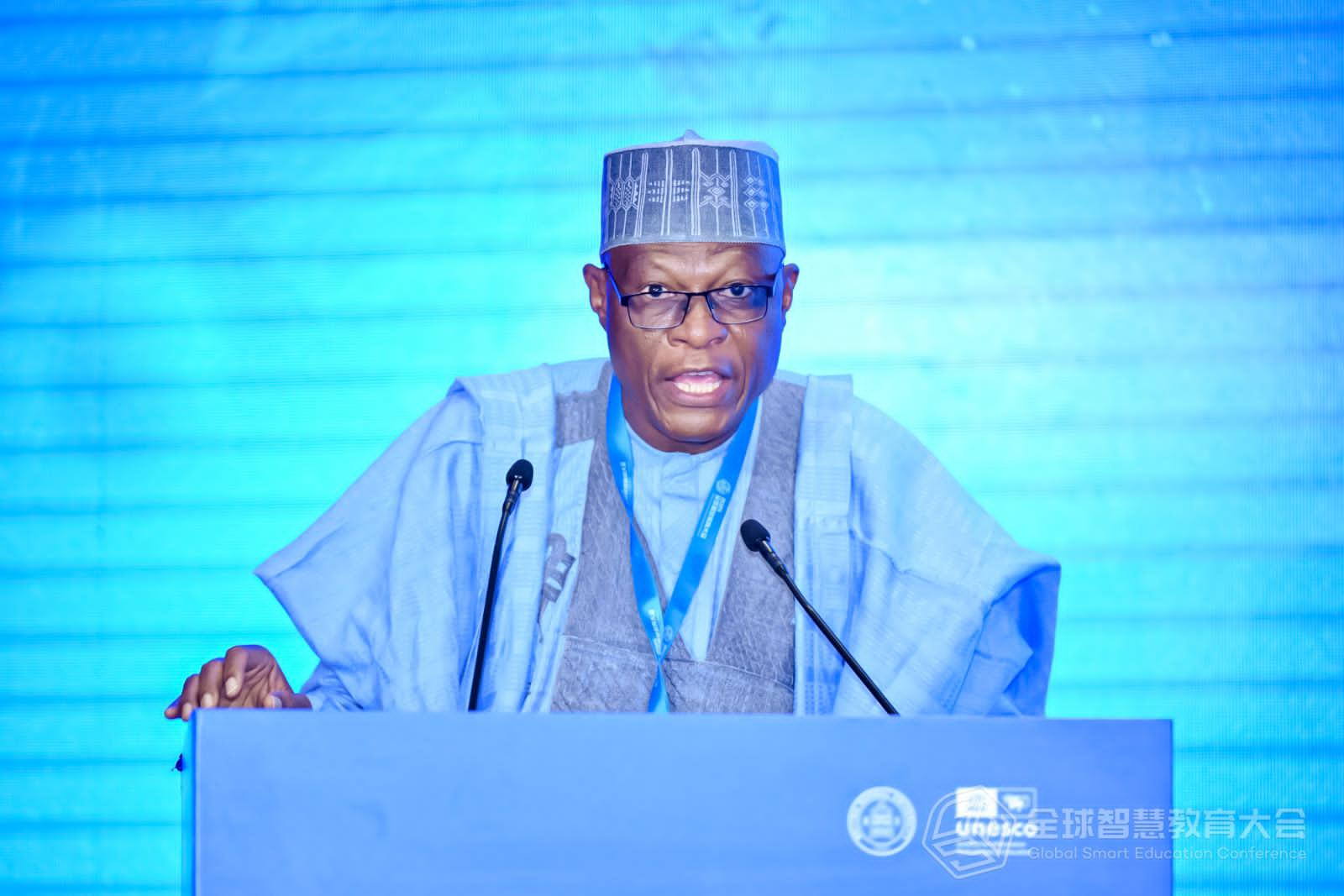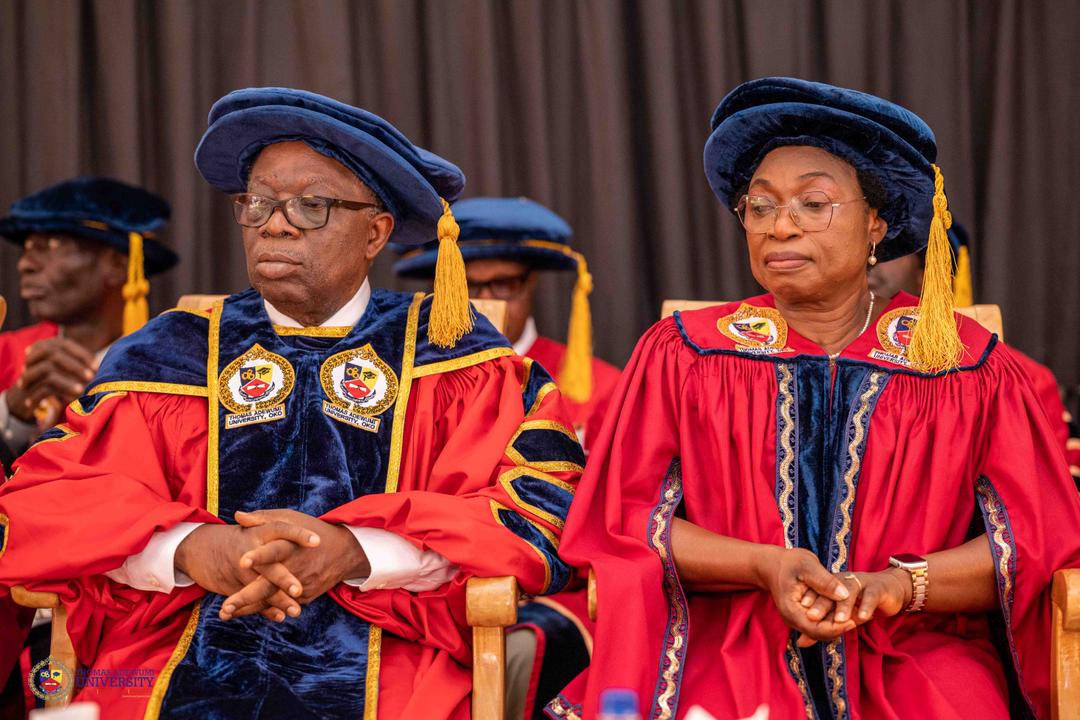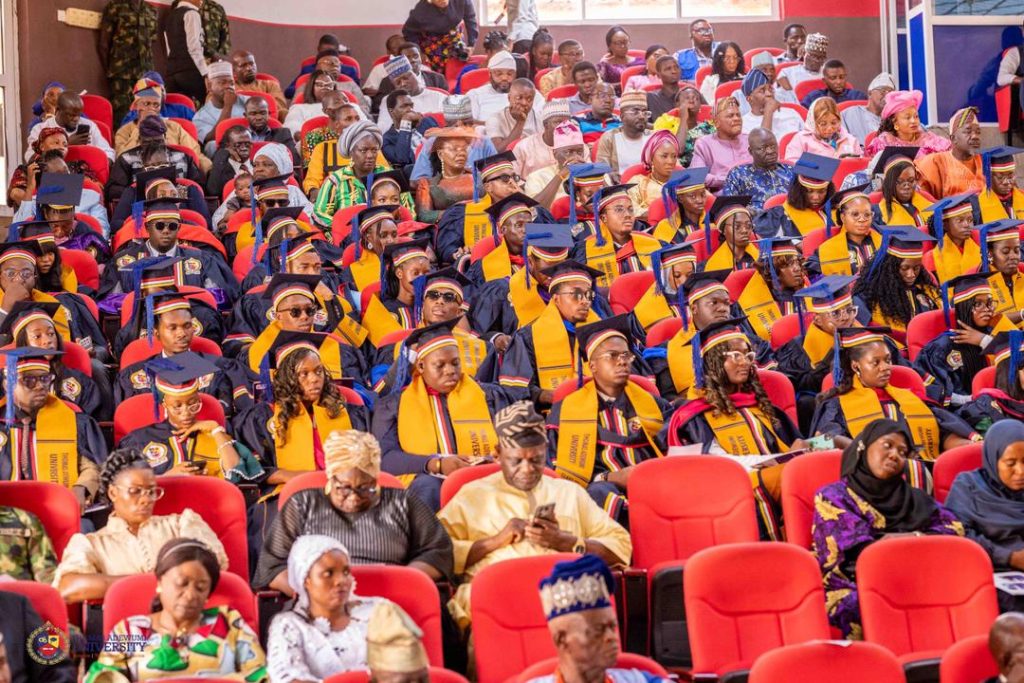Uncategorized
Ex-UNIABUJA VC, Na’Allah Urges FG, ASUU to Put Nigeria First in Talks

Stephen Olufemi Oni, Ilorin
Former Vice Chancellor of the University of Abuja, as well as the Kwara State University (KWASU), Prof. AbdulRasheed Na’Allah, has urged both the Federal Government and the Academic Staff Union of Universities (ASUU) to put the interest of Nigeria first in their negotiations, warning that endless disputes have crippled higher education in the country.
Prof. Na’Allah, who is currently the Pro-Chancellor and Chairman of Council of the newly licensed Abdulrasaq Abubakar Toyin (AAT) University, said years of mistrust between ASUU and government had weakened universities, reducing them to merely “certificate-issuing centres” instead of engines of national development.
“The crisis in Nigerian universities is at the core of our national crisis,” he said in an interview with newsmen in Ilorin, the Kwara State capital.
“Government has become less trustworthy, and unions are negotiating only for their members. Both sides no longer put Nigeria first.”
The Professor, who pioneered KWASU as its first Vice Chancellor, faulted the federal government for repeatedly signing agreements it cannot honour and blamed ASUU for shielding unproductive members.
He said: “In Nigeria, you will find professors who don’t teach, don’t attend classes, don’t bring in research grants, yet they want to be paid.
“Negotiations should be based on productivity. Professors who bring in grants, develop products, and work with industries should earn more. Those who don’t contribute should leave the system.”
Na’Allah stressed that government must also demand accountability in exchange for improved funding. “If ASUU is asking for better pay, government too should set conditions: quality teaching, industrial linkages, community development, semester-by-semester assessment of lecturers. That’s how universities grow,” he argued.
He lamented the decline of Nigeria’s first-generation institutions, citing the University of Ibadan’s fall from its once world-class status. According to him, a functional university system could have anticipated and addressed national crises such as insecurity.
“Boko Haram shouldn’t have even shown its face if our universities were effective,” he said.
“Research and surveys should have alerted the nation. But universities today are just about convocations and numbers, not solutions.”
Prof. Na’Allah said he does not see an end to the crisis unless sincerity and patriotism guide both sides. “The only solution is to love this nation. It’s not about ASUU, it’s not about government. It’s about Nigeria and whether we want our universities to compete globally.”
He drew comparisons with China, where he recently attended an Artificial Intelligence (AI) conference at Beijing Normal University. “China’s universities are leading in AI, powering everything from education to national defence. No Nigerian university is doing close to one percent of that,” he said.
On funding, the former VC called for reforms in the Tertiary Education Trust Fund (TETFUND), suggesting the creation of a grant window accessible to professors across both public and private universities.
“The law says TETFUND supports public universities, but we need a scheme that allows any professor in Nigeria, regardless of institution, to compete for grants. That way, innovation is encouraged nationwide,” he added.
Na’Allah, who also teaches at the National Open University of Nigeria (NOUN) on sabbatical, disclosed that he recently introduced a new course, Digital Humanities, designed to integrate technology into the humanities.
He said AAT University, where he chairs the governing council, is being built on a foundation of entrepreneurship, vocational training, and community development. “We don’t want a university that only gives certificates. We want one that changes society, strengthens it, and enriches it,” he said.
End
Uncategorized
TAU reaffirms commitment to globally competitive learning

- As 16 graduands make First Class
Stephen Olufemi Oni, Ilorin
The Thomas Adewumi University (TAU), Oko-Irese, in the Irepodun local government area of Kwara State, has reaffirmed its commitment to strengthening quality education, innovation, and globally competitive learning.

Speaking at the institution’s 2nd Convocation ceremony in Oko-Irese, the Vice Chancellor of the University, Professor Francisca Onaolapo Oladipo, said TAU is living up to its ranking as the fastest growing institution in Science, Technology, Engineering, Medicine, and Innovation (STEM-i) ecosystem by surpassing more than 100 percent in its number of graduating students at the second convocation.
She said: “TAU emerged on April 8, 2021, as Nigeria’s fastest-growing Science, Technology, Engineering, Medicine and Innovations (STEM-i) ecosystem. Today, we rank 1st among the 20 private universities that were licensed in
2021, 4th among the 14 Universities in Kwara State, 5th among Nigeria’s over 170 private Universities and 50th nationally, an impressive rise reflecting our unwavering commitment to excellence.
”What a Moment of Extraordinary Significance today, we stand at a crossroads far more significant than words can adequately capture. Exactly one year ago, we gathered at this very Auditorium to celebrate our inaugural Convocation, a ceremony that marked the graduation of 26 pioneering students who dared to believe in a vision when others saw only impossibility. Those 26 trailblazers proved that Thomas Adewumi University was not just a dream, but a reality rooted in excellence. Today, as we honour 63 outstanding graduates, we witness something far more profound than numerical growth.
“This 142% increase in our graduating class is not merely a statistic to be recorded in annual reports, it is a declaration that Thomas Adewumi University has transcended the realm of promise and entered the domain of proof.
“We have moved from potential to performance, from aspiration to achievement, from vision to velocity.
This year, 63 graduands from 4 Faculties and 11 academic programmes are being conferred. It is noteworthy that we have 16 First Class graduates, 40 in Second Class Upper Division, and 7 in Second Class Lower Division. These results reflect the quality of training and mentorship provided at Thomas Adewumi University, and we are proud to contribute these innovators to both the Nigerian and global workforce, confident that they will make a meaningful
impact.
”Preparing Globally Competitive Graduates, these 63 graduands are not merely degree holders, they are comprehensively prepared global professionals equipped with exceptional advantages that set them apart from their peers nationwide. Through our international partnerships, these graduates have obtained additional microcredentials from MIT, Harvard, Stanford, Columbia, Berkeley, and Yale, world-class certifications from Alison, UK, RUDN professional University, Russia, World Bank’s Saylor Academy, Google, ICAN, and the Global Partnership for Sustainable Development initiatives in Data Science and Artificial Intelligence.
“Our Coursera collaboration provided them with additional industry certifications, while partnerships with Microsoft, IBM SkillsBuild, and MIT OpenCourseWare through our Global Campus initiative democratize access to cutting-edge knowledge. They are thus fully equipped to embark on meaningful and innovative careers in today’s technology-driven world.”
Earlier in his Convocation Lecture, titled “Crowdfunding Opportunities forstartups: Equiping Nigerian graduates for a sustainable future”, Dr. Bayo Williams Olugbemi charged the graduads on the mindset of job creation, saying “as a graduate, your future is not defined by what Nigeria gives you, but by what you create. The idea of crowdfunding is the idea of hope. It is proof that when people come together, ideas once impossible become achievable.
“I urge you not to think only about searching for jobs. Instead, think about creating value, and if capital is a barrier, remember: “The crowd can be your first investor.”
In his goodwill message, the Executive Secretary of the National University Commission, Professor Abdullahi Ribadu, represented by Esther I. Eyo, Esq commended the resilience of TAU management said “NUC acknowledges TAU sustained progress in advancing quality teaching, impactful research, innovation, and community engagement, all of which align with our national aspiration for a globally competitive and knowledge-driven university system.
“It would interest you to know that, in the accreditation exercise conducted in 2023, Thomas Adewumi University achieved a 100% Full Accreditation status across all programmes assessed a laudable feat that reflects the University’s strong commitment to maintaining high academic standards.”
Also speaking, the Founder/Chancellor of the institution, Dr. (Engr) Johnson Adewumi, urged the graduands to be good ambassadors of the University, adding: “Remember that your degree is not an end but a beginning, go forth with courage, humility, and a sense of responsibility. Strive to illuminate whatever space you occupy with the light of integrity, excellence and service.”
Highlight of the event was the conferment of an honorary doctorate degree on two distinguished personalities; Engr Oluseyi Afolabi and Pastor Oladokun Olatunde.
End
Uncategorized
photo

L-r Speaker, House of Representatives, Tajudeen Abbas; President of the Senate, Godswill Akpabio and Nigeria’s First Lady, Senator Oluremi Tinubu, during the dinner for members of the National Assembly by the First Lady yesterday. Photo: Senate President’s Office.
Uncategorized
JUST IN: Even Tinubu moves with too many police escorts – Senator Ndume

By Hassan Taiye
Senator Ali Ndume has criticised what he described as the excessive use of security convoys by top government officials, including President Bola Tinubu, warning that the practice leaves ordinary citizens exposed and vulnerable.
Speaking on Politics Today on Channels Television on Thursday, Ndume said many public office holders move with security details that are unnecessarily large, even when their positions do not warrant such heavy protection.
He recalled visiting the residence of a colleague and finding “more than 10 policemen” attached to him, despite the lawmaker being junior to him in the National Assembly.
Ndume further argued that the presidential convoy itself is excessively large, stressing that security efforts should be focused on protecting the overall environment rather than individual personalities.
He said: “I went to one of my colleagues’ house for dinner. And I saw more than 10 policemen. He is even my junior in the National Assembly. Some of them, if you see them coming, you will pull back thinking that maybe it’s the President or the Vice President that is coming.
“
You can see even the president, the convoy that the president goes about with is too much. Secure the place and when the president goes, you withdraw. Secure Abuja and the president can even drive out, you know, himself.
But when you secure personalities, and this is what is happening in Nigeria, then others, common people, as we call them, become vulnerable, and we don’t care. So if you secure Abuja, then you can drive at night. And let me tell you, this is what is happening in most countries”.
The lawmaker’s comments come just days after President Tinubu ordered the withdrawal of police officers from VIP escort and guard duties.
In a statement, the Special Adviser to the President on Information and Strategy, Bayo Onanuga, said the directive was aimed at redeploying police manpower to core law enforcement responsibilities.
-

 Uncategorized5 years ago
Uncategorized5 years agoFG, states urged to harness flooding for ranching, others with technology – Agbaje
-

 Headlines10 years ago
Headlines10 years agoBreaking: EFCC seals Borno House of Assembly, as Hon members take to their heels
-

 News11 years ago
News11 years agoNigeria Security Operatives Stage Manhunt For Homosexual Perpetrator
-

 News9 years ago
News9 years agoHow 21-year-old Girl fled community over accusation of lesbianism
-

 News10 years ago
News10 years agoYobe Gov Moves Against Deputy
-

 Opinion7 years ago
Opinion7 years ago7 signs she has friend zoned you
-
Technology4 years ago
Online job placement company headhunts women
-

 Headlines10 years ago
Headlines10 years agoBorno Dep Gov Abducts Another Church Leader





